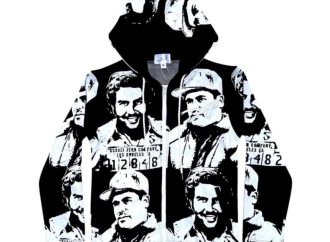In today’s digital age, social media has become an integral part of our lives. It is now a powerful tool for political campaigns to reach out and engage with voters on a massive scale. From tweeting their policies to posting videos highlighting their achievements, politicians are using various social media platforms to connect with the
In today’s digital age, social media has become an integral part of our lives. It is now a powerful tool for political campaigns to reach out and engage with voters on a massive scale. From tweeting their policies to posting videos highlighting their achievements, politicians are using various social media platforms to connect with the masses. But how effective is this strategy? Is it really helping them win votes or just creating noise in an already crowded online space? In this blog post, we will explore the impact of social media on political campaigns and see if twe
The Power of Hashtags: How Social Media is Driving Political Change in America
In the age of social media, hashtags have become an increasingly powerful tool for political activism. From #BlackLivesMatter to #MeToo, these simple yet effective symbols are driving change and sparking important conversations across America. But what makes a hashtag successful? And how are they influencing politics today? In this blog post, we’ll explore the power of hashtags in shaping public opinion and driving political change in America. So grab your mobile device and get ready to join the conversation!
What are Hashtags?
Hashtags are a powerful way to connect with like-minded people on social media. By using hashtags, you can easily find and follow conversations about topics that interest you. Hashtags can also help you reach a wider audience beyond your personal network of friends and followers.
In recent years, hashtags have played an important role in promoting political change in America. From the #BlackLivesMatter movement to the #MeToo movement, hashtags have helped raise awareness about social justice issues and rally support for progressive causes.
With the 2020 presidential election around the corner, it’s likely that we will see even more political hashtags trending on social media. Hashtags offer a simple but effective way for ordinary citizens to participate in the political process and hold candidates and elected officials accountable.
A Brief History of Hashtags
In 2007, Twitter launched and quickly gained popularity as a microblogging platform. In 2009, the “#” symbol was added to allow users to tag their tweets with keywords. This marked the beginning of the hashtag as we know it today.
Hashtags became widely used on Twitter and other social media platforms as a way to categorize and search for content. They were especially useful for live-tweeting events or following conversations around a certain topic.
Over time, hashtags have been used for more than just categorization. They have become a way to start or join conversations, rally support for a cause, or even make jokes. Hashtags can be serious or funny, somber or empowering. They can unite people around the world in a common experience or help someone who feels alone connect with others who understand what they’re going through.
Hashtags have become so ubiquitous that they are now used in mainstream media as well. Television shows and news programs often promote a hashtag so viewers can follow along and join the conversation online. Hashtags have even made their way into advertising campaigns
How Hashtags are Used Today
The Power of Hashtags: How Social Media is Driving Political Change in America
Hashtags have become a powerful tool for social media users to connect with each other and share information. They are used to start conversations, join forces with like-minded people, and organize campaigns. Hashtags are being used by more and more people to engage in political discussion and activism.
In the past, most political discussion happened offline, through face-to-face interactions or on television and radio. But today, social media is playing an increasingly important role in politics. People are using platforms like Twitter, Facebook, and Instagram to connect with each other and share their views on the issues that matter to them. And hashtags are a key part of this process.
Hashtags allow users to find tweets, posts, and articles about topics that interest them. They also make it easier for people to join together around a common cause or issue. For example, the #MeToo movement gained traction online using the power of hashtags to unite survivors of sexual harassment and assault from all over the world. The #BlackLivesMatter movement has also used hashtags to connect activists and supporters and bring attention to police brutality against black Americans.
In the past year alone, we’ve seen the power of hashtags in action during the #resistance against Donald Trump’s presidency, the #MarchForOurLives protests against gun violence, and the #metoo movement against sexual harassment and
The Impact of Hashtags
Hashtags have become a powerful tool for social media users to promote their beliefs and connect with others who share their views. But what is the impact of this virtual connection on real-world political change?
In recent years, we’ve seen hashtags play a significant role in some major political movements, including #MeToo, #BlackLivesMatter, and #NeverAgain. Hashtags provide a way for people to quickly and easily find others who are talking about the same issue, and they can help raise awareness about important topics.
But it’s important to remember that hashtags are just one part of the equation when it comes to effecting change. They can be used to help start or amplify a conversation, but ultimately it’s up to each individual to decide how they want to take action on the issues that matter to them.
Hashtags and Political Change
It is no secret that social media has the power to connect people from all over the world and give them a platform to share their thoughts and opinions. What is less well known, however, is the power that hashtags have to drive political change.
Hashtags are a simple way for people to categorize, find, and follow topics that interest them. They can be used to raise awareness about an issue, start a conversation, or organize a movement. In recent years, we have seen hashtags play a pivotal role in driving political change in America.
The #MeToo movement was started by Tarana Burke in 2006 as a way to empower women of color who had been victims of sexual violence. The hashtag went viral in 2017 after actress Alyssa Milano urged women who had been sexually harassed or assaulted to tweet #MeToo as a way of showing solidarity and raising awareness about the prevalence of sexual assault and harassment. The hashtag sparked a national conversation about sexual assault and harassment and led to the downfall of several powerful men, including Hollywood producer Harvey Weinstein.
The #BlackLivesMatter movement began in 2013 after the acquittal of George Zimmerman in the shooting death of Trayvon Martin. The hashtag was created as a way to unify those who were protesting against police brutality and racial injustice. The #BlackLivesMatter movement gained even more traction in 2014 after the deaths of Michael Brown and Eric Garner at the hands of police officers. The movement has since
Conclusion
Hashtags are powerful tools for connecting with like-minded individuals, organizations and movements. They can help to create a common goal or sentiment that has the power to drive real political change in our country. We have seen this influence firsthand through social media campaigns such as #MeToo and Black Lives Matter, both of which have had profound impacts on society. As more people become aware of the potential of these hashtags, it is likely that we will continue to see their positive impact on American politics for years to come.
ets can indeed turn into votes!
The rise of social media
The rise of social media has had a profound impact on political campaigns. In the past, candidates relied heavily on television and radio ads to reach voters. However, with the advent of social media, candidates can now reach voters directly through platforms such as Twitter and Facebook.
Social media has changed the way campaigns are run. Candidates can now interact with voters in real-time, which allows for a more personal connection. Additionally, social media gives campaigns a way to target specific demographics with targeted messaging. For example, a campaign can target young voters by running ads on Snapchat or Instagram.
Social media also provides a way for campaigns to track their progress and gauge public opinion. Through platforms such as Twitter, Facebook, and Instagram, campaigns can see how many people are talking about them and what issues are resonating with voters. This information is invaluable for crafting future strategy.
Overall, social media has had a major impact on political campaigns. It has given candidates a new way to reach voters and track their progress. It has also changed the way campaigns are run, making them more interactive and personal.
How social media is changing political campaigns
The rise of social media has had a profound impact on political campaigns. In the past, candidates relied heavily on traditional media outlets, such as television and print, to reach voters. However, with the advent of platforms like Facebook and Twitter, candidates are now able to directly engage with potential voters online. This has allowed for a more interactive and personal campaigning style that was not possible before.
There are a few key ways in which social media is changing political campaigns. First, social media allows candidates to connect with voters in a way that is immediate and personal. Candidates can post updates about their campaign, photos from events, and videos of speeches directly to their followers. This level of transparency and interaction is unprecedented in politics.
Second, social media gives rise to new forms of campaigning. For example, viral marketing campaigns have become increasingly popular on platforms like YouTube and Twitter. These kinds of campaigns allow candidates to reach a larger audience with their message without spending a lot of money on traditional advertising methods.
Finally, social media has made it easier for people to get involved in the political process. In the past, it was often difficult for citizens to find out information about where they could vote or how they could get involved in a campaign. However, now there are many online resources that make it easy for people to find this information and get involved in the political process.
Overall, social media is having a major impact on the way political campaigns are conducted. With its ability
The impact of social media on democracy
Social media has had a profound impact on democracy. It has given rise to a new form of campaigning that is more participatory, empowering ordinary citizens to have a greater role in the political process.
However, social media also has its drawbacks. The way information is shared on social media can be easily manipulated, and false information can spread quickly and easily. This can lead to disinformation and misinformation campaigns that can undermine democracy.
In addition, social media can be used to target individuals with personalized messages and ads, which can influence their opinions and votes. This raises serious concerns about the potential for manipulation of public opinion by powerful interests.
Overall, social media has both positive and negative implications for democracy. On the one hand, it gives ordinary citizens a greater voice in the political process. On the other hand, it can be easily abused to spread disinformation and manipulate public opinion.
Conclusion
Social media has become a powerful tool for political campaigns. It enables campaigns to reach large numbers of people in a short amount of time, and it makes it easier to spread their messages quickly and effectively. Despite its potential power, there is still much debate over the impact that social media can have on an election’s outcome. Nevertheless, with more and more candidates turning to this form of communication as part of their strategy, it is clear that social media will continue to play an increasingly important role in politics for many years to come.





















Leave a Comment
Your email address will not be published. Required fields are marked with *